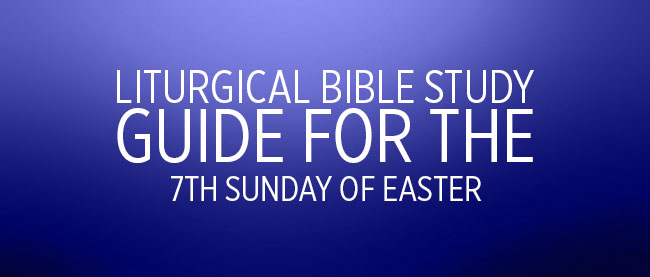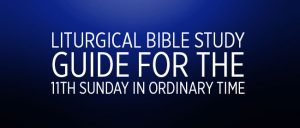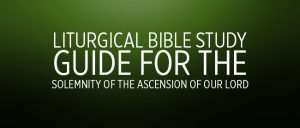Gospel – John 17:20-26
As the season of Easter draws to a close, the Church takes us back to the upper room and the teachings of Jesus just prior to His arrest. Having just prayed for Himself (John 17:1-5) and for His disciples (John 17:6-19), Jesus now prays for all believers; for us!
1st Reading – Acts 7:55-60
On the 4th and 5th Sundays of Easter we heard of Saint Paul’s first missionary journey and how he and Barnabas were rejected by the Jews and persecuted, but the Gentiles were attracted to them. Last week, we heard of the Council of Jerusalem where it was declared by Peter, and subsequently the whole Church, which Gentile converts did not have to become Jews prior to being baptized and becoming Christians. Today we hear of the stoning of Stephen, the first Christian martyr. Stephen was one of the first seven deacons; having been ordained to provide for the needs of the community in Acts 6:1-6.
In the events leading up to today’s reading we find that Stephen, in addition to his duties in the daily distribution of food, did great wonders and miracles among the people. When he was brought before the Sanhedrin, he also proved to be quite an orator; his address to them is recorded in Acts 7:2-53. Some of our fundamentalist Protestant brothers and sisters criticize Catholics because they call their priests “father” citing Matthew 23:9 “Call no man your father on earth.” When you read Saint Stephen’s address to the Sanhedrin, you will find that he calls other men “father” 27 times; but it is not for this that he is condemned and stoned. He is stoned because he points out how the Jews have always persecuted the prophets and have even betrayed and murdered the One sent to fulfill all those prophesies.
2nd Reading – Revelation 22:12-14, 16-17, 20
Every week since the 2nd Sunday of Easter we have heard our second reading from the book of Revelation. We have heard of Saint John’s vision of the heavenly liturgy and of the coming of the Heavenly Jerusalem in the end times. By “end times” I don’t mean the end of the world as such, but the end of the world as the Jew perceived it – an event which took place in A.D. 70 when the Temple and Jerusalem were destroyed; marking the end of the Old Covenant and the continuation in glory of the New. In our reading on the 2nd Sunday of Easter we heard the words declared “I am the first and the last.” As we hear our reading today, which comes from the closing verses of the book of Revelation, we hear this familiar theme again.





